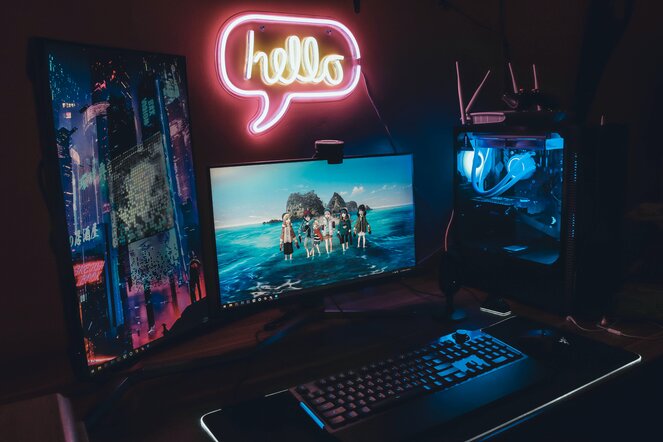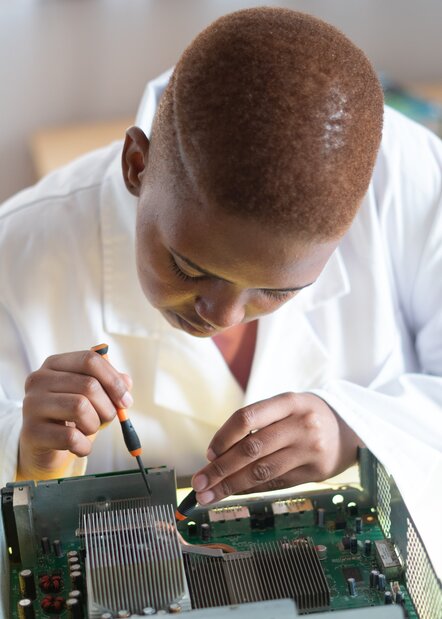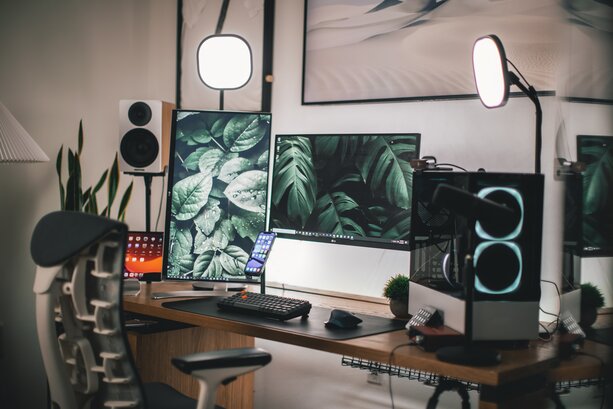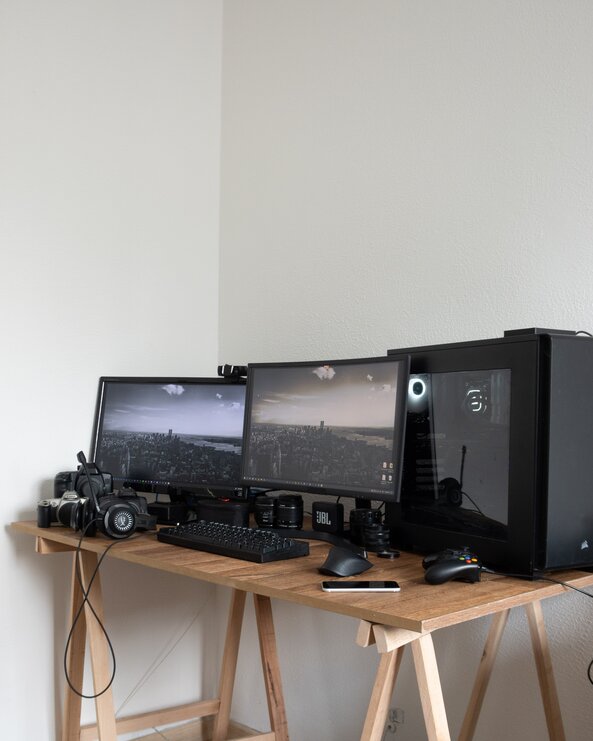Desktop Computer PC: All the Stats, Facts, and Data You’ll Ever Need to Know. This comprehensive guide will tell you all the stats, facts, and data you need to know to solve any issue you may be having. Everything from hardware to software is covered, so you can be sure that your problem has a solution somewhere within this blog post.
Desktop Computer PC: All the Stats, Facts, and Data You’ll Ever Need to Know
Don’t spend hours searching through online forums for answers to your questions – just consult this post and get back to using your PC in no time! There’s no doubt that desktop computers have come a long way since their inception. Today’s desktop PCs are more powerful and versatile than ever before, and they continue to get better with each passing year.

- The Most Innovative Things Happening With Desktop Computer PC
Here are some of the most innovative things that are happening with desktop computer PCs:
- They’re getting more powerful
As technology advances, so do the capabilities of desktop computers. They’re now more powerful than ever before, able to handle even the most demanding tasks with ease.
2. They’re becoming more compact
While desktop computers used to take up a lot of space, that’s no longer the case. Many models are now very compact, making them perfect for use in small spaces.
3. They’re getting cheaper
Despite their increasing power and capabilities, desktop computers are becoming more affordable. This makes them a great option for budget-conscious shoppers.
4. They’re becoming more user-friendly
With the advent of new technologies like artificial intelligence and voice recognition, desktop computers are becoming more user-friendly than ever before. This makes them a great option for those who aren’t as tech-savvy as some of their counterparts. Desktop Computer PC: All the Stats, Facts, and Data You’ll Ever Need to Know.
- How Much Should You Be Spending on Desktop Computer PC?
If you’re like most people, you probably don’t think about how much you should be spending on a desktop computer PC until you need to buy one. Then, you might find yourself scrambling to figure out what’s a reasonable price. Desktop Computer PC: All the Stats, Facts, and Data You’ll Ever Need to Know.
Here’s a quick guide to help you budget for your next desktop computer PC.

- How much should you spend on a desktop computer PC?
This is a difficult question to answer because it depends on your needs. A basic desktop computer PC might cost as little as $500, while a top-of-the-line model could cost more than $2,000.
If you’re just looking for a basic computer to do things like check email and surf the web, then a budget model might be all you need. However, if you want to use your computer for more demanding tasks like video editing or gaming, then you’ll need to spend more.
Think about what you’ll be using your computer for before setting a budget. That way, you can make sure you’re getting the right machine for your needs.
- How to Get More Results Out of Your Desktop Computer PC
If you are looking to get more results out of your desktop computer PC, there are a few things that you can do. First, make sure that you have a fast and reliable internet connection. This will ensure that you can download and install programs quickly. Secondly, install a good anti-virus program on your computer. This will protect your system from any malicious software that could potentially damage your system or steal sensitive information. Finally, keep your system updated with the latest security patches and drivers. This will help to keep your system running smoothly and efficiently.

- Desktop Computer PC: A Simple Definition
A desktop computer PC is a personal computer that is designed to be used at a desk or table. It is typically composed of a case, monitor, keyboard, and mouse. The motherboard, central processing unit (CPU), and other important components are housed inside the case. External devices can be connected to the PC via various ports on the front or back of the case.
- The History of Desktop Computer PC
The desktop computer PC has come a long way since its humble beginnings in the early 1970s. Today, the desktop PC is a powerful tool that can be used for everything from simple tasks like browsing the web to more complex tasks like video editing and gaming.
But it wasn’t always this way. In the early days of the desktop PC, many issues needed to be solved before it could become the versatile machine it is today. Here’s a look at some of the biggest issues that needed to be tackled in the early days of the desktop PC.
- Power Consumption
One of the biggest issues with early desktop PCs was power consumption. The first desktop PCs were very power hungry, which made them expensive to operate and not very eco-friendly. It wasn’t until the introduction of more efficient CPUs and GPUs that power consumption became less of an issue.
2. Heat Dissipation
Another big issue with early desktop PCs was heat dissipation. Because they were so power hungry, early desktop PCs generated a lot of heat, which could damage components and make the machine uncomfortable to use.
3. The Most Common Mistakes People Make With Desktop Computer PC
There are a few things that can go wrong when you’re setting up or using a desktop computer PC. Here are some of the most common mistakes people make, and how to avoid them.
One mistake people make is not backing up their data. This is important because if something goes wrong with your computer, you could lose all your data. Make sure to back up your data regularly, either to an external hard drive or to the cloud.
Another mistake is not keeping your operating system and software up to date. Updates often include security fixes, which can help protect your computer from malware and other threats. To check for updates, open your settings app and look for the “Updates” or “Software Updates” section.
People also sometimes forget to clean out their computers, both physically and digitally. Dust can build up inside your computer and cause it to overheat, while digital clutter can slow down your system. To clean your computer, just use a soft cloth to dust off the outside and inside of your machine, and use a program like CCleaner to clear out digital junk files.












